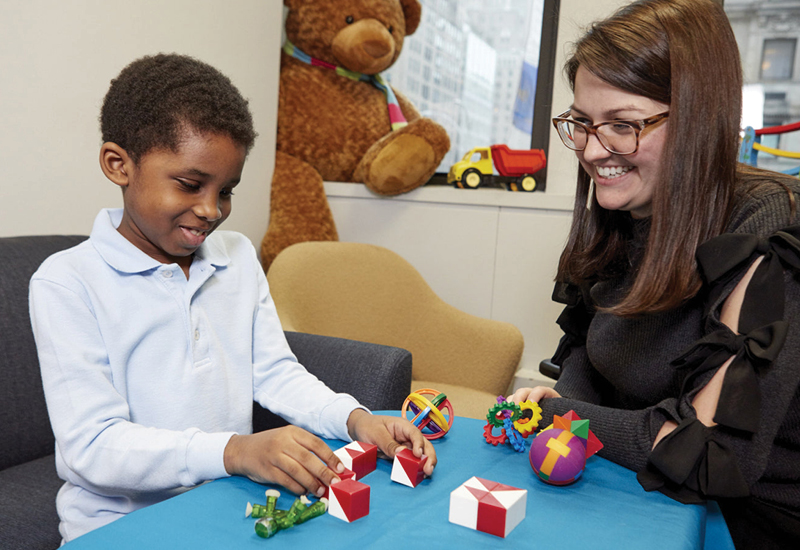Millones de niños -hasta 1 de cada 5- se enfrentan a trastornos de salud mental o del aprendizaje. El 70% de los condados de EE.UU. no cuentan con un solo psiquiatra de niños y adolescentes. Debido al estigma, la desinformación y la falta de acceso a la atención, el tiempo medio entre la aparición de los síntomas y cualquier tratamiento es de más de 8 años. Nuestros niños se merecen algo mejor.
Por eso se creó el Child Mind Institute.
Nos dedicamos a transformar la vida de los niños y las familias que se enfrentan a trastornos de salud mental y del aprendizaje ofreciéndoles la ayuda que necesitan. Nos hemos convertido en la principal organización independiente sin fines de lucro en el ámbito de la salud mental de los niños, proporcionando una atención basada en evidencia de alto nivel, ofreciendo recursos educativos a millones de familias cada año, formando a educadores en comunidades desatendidas y desarrollando los tratamientos más innovadores del futuro.
Juntos, podemos transformar realmente la vida de los niños.





